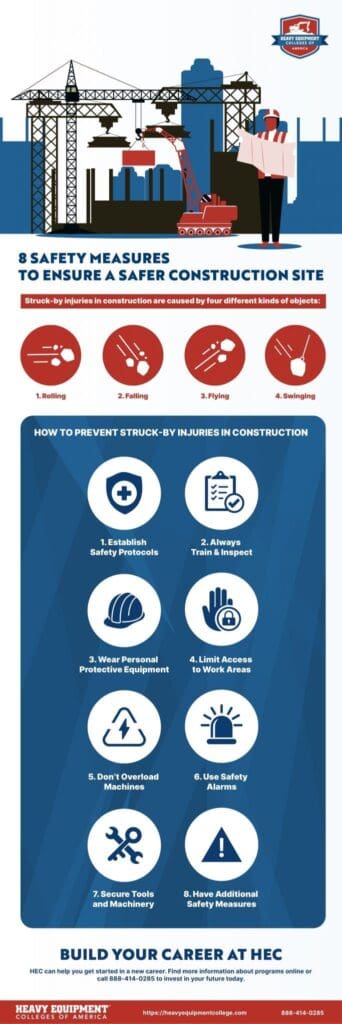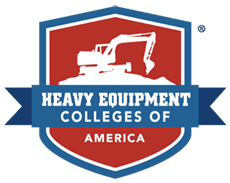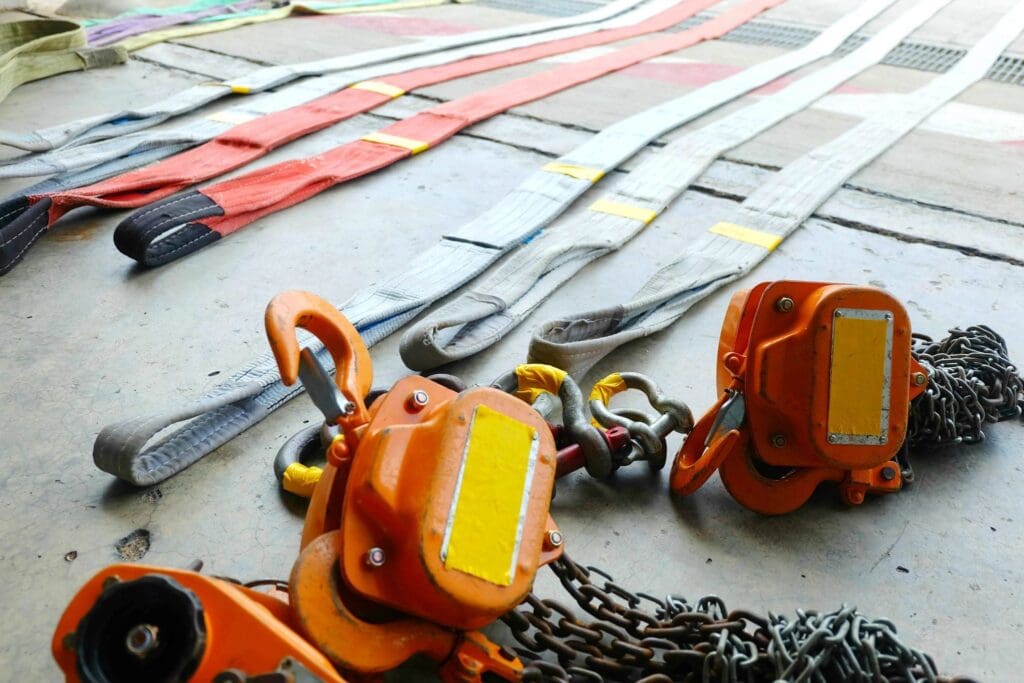Staying Safe in the Construction Industry
On nearly every construction site, you’ll find heavy machinery operators diligently digging, excavating, or building a better future. Heavy machines assist in the loading and unloading of heavy materials, and overall speed up the construction process. Equipment safety is vital to ensuring a smooth construction site. OSHA reports that 1 in every 5 workplace fatalities happens in the construction industry. Avoiding the three main equipment hazards and following proper safety protocols are important to the health and safety of every construction worker.
The 3 Main Equipment Hazards
There are three common equipment hazards that can lead to construction worker injuries and fatalities. Be aware of these three hazards, and keep heavy equipment safety top of mind.
- Access
A lack of safety around heavy equipment can lead to workers being trapped, injured, or exposed to additional hazards. To avoid access hazards, plan which equipment and materials will be used, and which workers will be in the work zone. - Mechanical
When heavy machinery is in use, mechanical hazards can pose safety risks. When precautions are not taken and proper safety measures are not adhered to, workers can be cut, punctured, crushed, or tangled in the machine. - Non-Mechanical
Non-mechanical hazards refer to anything stemming from the machine when it’s not in use. This could be a build-up of gas or fluid, an electrical charge, or a hot surface. Examples of non-mechanical hazards are dust, heat, light, radiation, and heavy metals. Lung damage, burns, or other serious illnesses can result.

Tips to Safely Operate Heavy Equipment
Take heavy equipment safety seriously and adhere to these seven tips for operating heavy machinery.
- Have Proper Operator Training
Before any operator can use a machine, he/she should be properly trained on the equipment. Proper training includes how to safely start the machine, knowing the machine’s capacity, and compliant operations. - Complete a Pre-use Inspection
Properly inspect the machine before every use. Check for any damage or irregularities. Tire pressure and fluid levels should also be checked. - Always Wear a Seatbelt
If the machine rolls over, a seat belt helps protect operators from being thrown from the cab. Seat belts are protective gear that employers are required to provide. - Communicate
Constantly communicate with your supervisor or the ground crew while operating heavy equipment. - Check Surroundings
Be mindful of any hazards in your work area before any work begins. This includes blind spots, power lines, or underground utilities. Always double-check for any workers in the vicinity before beginning work. - Follow Load Limits
Know the limits of your machine and follow them. Improper use of heavy machinery can result in injuries. - Properly Enter and Exit the Cab
Follow the three-point rule to enter and leave heavy machinery. Whether that is both hands and one foot, or both feet and one hand, there should always be three points of contact.
Never jump into or out of the cab, and ensure proper lockout and tag-out procedures are followed before exiting.
Keep Ground Workers Safe
Blind spots can pose a serious threat to safety. Where ground worker visibility may be an issue and hearing warnings from operators may be impacted by noise levels. Be sure to use spotters to provide hand signals. Spotters should wear highly visible clothes and signal to the operator when ground workers or pedestrians are nearby.
Here are five tips ground workers can also follow to remain safe around heavy machinery:
- Avoid standing or working in blind spots
- Don’t set up work areas near active machines
- Never walk under a suspended load
- Wear highly visible clothing and PPE
- Before approaching machinery, confirm the operator sees you
Find a Heavy Equipment School Near You
Educate yourself on heavy machine safety procedures and techniques with heavy equipment training from Heavy Equipment Colleges of America (HEC). In addition to safety, HEC programs cover basic equipment operation skills, construction site fundamentals, and equipment maintenance.
Whether you’re looking to get ahead in your career or you’re considering making a career change, HEC has a program for you. In as little as three weeks you could be on your way to an exciting career in heavy equipment operation. Find a HEC location near you.
Apply online today or call (888) 414-0285 to start your exciting career today.

